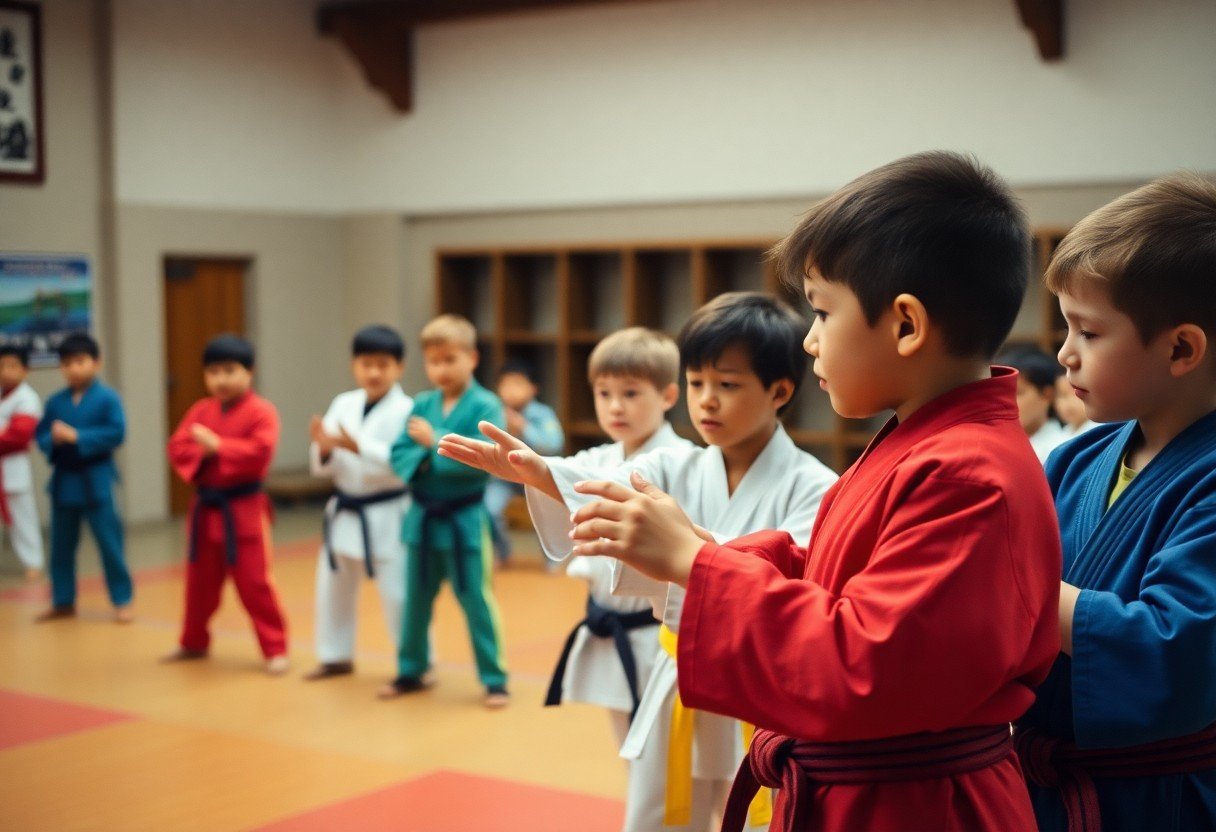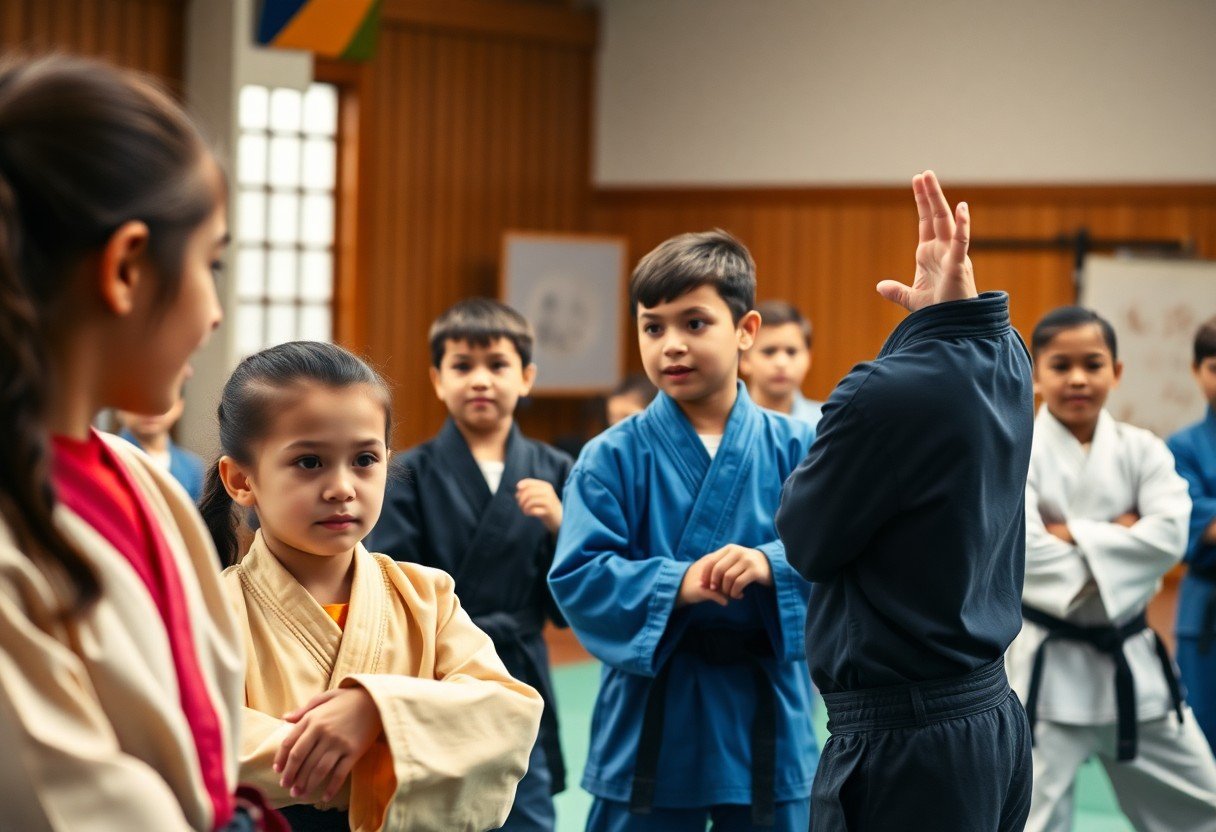Most parents seeking effective ways to support their children with ADHD and behavioural challenges may find that martial arts offers a structured environment that promotes discipline and focus. Engaging in martial arts can help improve your child’s self-control, enhance their social skills, and boost their self-esteem. Through consistent practice, they can learn vital techniques for managing impulsivity and channeling their energies positively. This blog post explores the various benefits martial arts can provide to children facing these challenges.
Understanding ADHD and Behavioral Issues
While ADHD and behavioural issues can create significant challenges for children and their families, understanding these conditions is the first step towards finding effective solutions. Attention Deficit Hyperactivity Disorder (ADHD) is a neurodevelopmental disorder that affects how children focus, control impulses, and regulate their activity levels. With appropriate strategies in place, children with ADHD can thrive and reach their full potential.
Definition and Symptoms
Symptoms of ADHD typically include challenges with maintaining attention, hyperactivity, and impulsiveness. Children may find it difficult to complete tasks or follow instructions, often appearing forgetful or easily distracted. Additionally, they may struggle with sitting still, frequently fidgeting or interrupting others, which can impact their social interactions and academic performance.
Common Challenges Faced by Children
Children with ADHD often face various challenges in daily life. These obstacles can lead to social difficulties, academic struggles, and emotional issues.
Behavioural challenges can manifest in many ways, such as difficulty following rules, issues with peer relationships, and a tendency to be easily frustrated. As a result, your child might experience low self-esteem and feelings of isolation, which can further exacerbate their behavioural issues. With tailored support and understanding, it is possible to address these challenges effectively, promoting a happier and more productive environment for your child.
The Role of Martial Arts in Child Development
Even for children with ADHD and behavioural issues, martial arts can play a significant role in development. It not only provides structured physical activity but also teaches discipline and respect. If you’re curious about its impact, you might find insight in this discussion: Anyone tried karate/martial arts for their ADHD child?
Physical Benefits
Benefits of martial arts for your child include improved strength, coordination, and flexibility. These activities promote physical fitness, which is necessary in helping to manage hyperactivity and impulsivity often associated with ADHD.
Mental and Emotional Advantages
Physical training in martial arts fosters self-esteem and respect which are vital for children with behavioural challenges. It helps them establish control over their actions while instilling discipline and focus.
Advantages of engaging in martial arts extend well beyond mere physical training. As your child develops new skills, they experience a boost in confidence and learn to manage emotions better. The structured environment allows them to practice self-discipline, integrate with peers, and reduce feelings of isolation. Over time, these positive changes can significantly enhance their social interactions and overall well-being, fostering a sense of belonging and purpose.
Structure and Discipline in Martial Arts
It is widely recognised that martial arts provide a robust framework of structure and discipline, which can be particularly beneficial for children facing ADHD and behavioural challenges. The consistent practice of martial arts encourages adherence to rules and routines, fostering a sense of order that can positively impact their daily lives. As you engage in training, the rituals and protocols inherent in martial arts teach respect for authority and oneself, promoting a disciplined lifestyle that extends beyond the dojo.
Building Routine and Focus
Across various martial arts disciplines, the establishment of routine plays a vital role in enhancing focus and attention. Regular classes often incorporate structured warm-ups, techniques, and drills, allowing you to develop a sense of predictability and stability. This routine can help cultivate concentration skills that are crucial for effective learning and behaviour management, aiding your child in staying engaged and attentive in both martial arts and other areas of life.
Enhancing Self-Control and Impulse Management
SelfControl is an integral part of martial arts training, as it requires children to manage their impulses and reactions. Through the practice of controlled movements and mindful techniques, you will find that your child learns to pause and reflect before acting, fostering better impulse control in various situations. This skill is fundamental for improving behaviour and reducing conflicts, ultimately enabling your child to navigate social dynamics more effectively.
Understanding the importance of self-control in martial arts is vital for your child’s personal development. Training equips them with skills to recognise their emotional triggers and exercise discipline over their responses. As they progress, children experience a sense of accomplishment that boosts their self-esteem and reinforces the value of patience and delayed gratification. By instilling the ability to manage impulses, martial arts not only promote behavioural improvement but also enhance long-term coping strategies in challenging environments.

Social Skills and Teamwork Through Martial Arts
Keep in mind that martial arts provide an excellent platform for children to develop social skills and learn the importance of teamwork. Through structured classes and group activities, your child will engage with peers, fostering connections and enhancing their ability to communicate effectively. This environment encourages collaboration, helping children to navigate social interactions in a positive way.
Interaction with Peers
For children with ADHD and behavioural issues, engaging in martial arts offers opportunities for interaction with peers. The camaraderie built in classes encourages them to form friendships, practice communication, and develop empathy as they work together towards a common goal.
Learning Respect and Cooperation
With martial arts training, your child learns the values of respect and cooperation. Each session emphasises discipline and the importance of supporting fellow students, which helps to cultivate a sense of community among participants.
Even in competitive scenarios, martial arts instils fundamental values such as respecting instructors, cooperation with peers, and adhering to rules. These teachings not only enhance your child’s ability to work well with others but also nurture their understanding of personal boundaries and honour in interactions. Over time, these lessons translate into improved behaviour both in and out of the dojo, promoting healthier relationships and a more harmonious existence with peers.
Success Stories: Martial Arts Transformations
Despite the challenges faced by children with ADHD and behavioural issues, numerous success stories illustrate how martial arts can be a transformative experience. Many parents report significant improvements in their children’s focus, discipline, and social skills. For more insight, check out Using Martial Arts to Cope with ADHD.
Case Studies and Testimonials
One compelling example is the following transformations:
- Case 1: A boy aged 10 showed a 50% improvement in attention span after six months of martial arts training.
- Case 2: A girl aged 8 reported a significant decrease in aggressive outbursts, with a 40% reduction over three months.
- Case 3: An adolescent aged 14 improved social interactions, increasing peer friendships from 2 to 8 within a year.
Expert Opinions
One of the noteworthy aspects of martial arts is its potential to foster vital life skills. Understanding the impact, experts agree that martial arts can help strengthen self-discipline and emotional regulation in children with ADHD. Studies indicate that physical activity not only enhances focus and impulse control but can also reduce symptoms of anxiety and depression. Moreover, martial arts classes can provide a structured environment where children learn to set and achieve goals, further boosting their confidence and self-esteem.
Choosing the Right Martial Arts Program
All parents want the best for their children, especially when it comes to activities that can aid their development. Choosing the right martial arts program can significantly enhance your child’s skills and focus. It’s crucial to consider various aspects to ensure the chosen programme aligns with your child’s needs and temperament.
Factors to Consider
Between different martial arts styles and schools, you should evaluate the following factors:
- Style of Martial Arts that resonates with your child
- Class Size and level of individual attention
- Instructor Credentials, including their experience with ADAH
- School Environment that promotes positivity and discipline
This careful consideration will ensure the programme is tailored to support your child’s growth effectively.
Finding Qualified Instructors
Right from the start, the quality of instruction your child receives is vital for their progress. Look for instructors who not only have experience in martial arts but also possess a background in working with children, specifically those with ADHD and behavioural issues.
The success of a martial arts programme largely hinges on the abilities of its instructors. To ensure your child learns in a safe and supportive atmosphere, seek instructors with a demonstrated track record of helping children with ADHD and behavioural challenges. They should be patient, understanding, and adept at modifying techniques to cater to different learning styles. Engaging with an instructor who has a solid grasp of both martial arts and child development is crucial; this not only enhances your child’s experience but also mitigates any potential risks of frustration or injury. Prioritising this will lead to positive interactions and a fulfilling journey for your child.
Summing up
To wrap up, engaging your child in martial arts can provide them with crucial tools to manage ADHD and behavioural challenges. Through structured routines and discipline, your child will learn focus, self-control, and respect for others, contributing to their emotional regulation. Moreover, the physical activity involved helps channel energy positively, fostering confidence and social interaction. By incorporating martial arts into your child’s routine, you can help them develop valuable life skills that promote a healthier mindset and improved behaviour.
FAQ
Q: How can martial arts help children with ADHD?
A: Martial arts can provide children with ADHD a structured environment where they can channel their energy and improve focus. The practice involves repetitive movements and routines, which can enhance concentration and self-discipline. Furthermore, martial arts emphasise respect for instructors and peers, aiding in the development of social skills.
Q: What specific skills do children learn from martial arts that can assist with behavioural issues?
A: Children participating in martial arts learn various vital skills, including self-control, patience, and goal setting. The training promotes emotional regulation as participants navigate their emotions during practice and competition. This environment fosters resilience and teaches children how to constructively respond to frustration or challenges.
Q: Are there particular martial arts styles that are more beneficial for children with behavioural challenges?
A: While many martial arts can be beneficial, styles that emphasise discipline, such as Taekwondo and Karate, may be particularly advantageous. These forms often include a strong focus on respect and mental conditioning. However, finding a style that resonates with the child’s interests is important, as this can improve their engagement and motivation.
Q: How can parents ensure their child is in a suitable martial arts class?
A: Parents should look for martial arts schools that prioritise a positive and inclusive environment. It is advisable to observe classes to assess the instructor’s approach to teaching children, especially those with ADHD or behavioural issues. Many schools offer trial classes, allowing parents to gauge their child’s comfort and interest before making a commitment.
Q: How long will it take to see improvements in my child’s behaviour through martial arts training?
A: The timeline for observing improvements can vary based on the individual child and their specific challenges. Generally, consistent training over a few months can lead to noticeable changes in behaviour, focus, and social skills. Regular attendance and ongoing reinforcement of the skills learned are key to achieving the best results.



